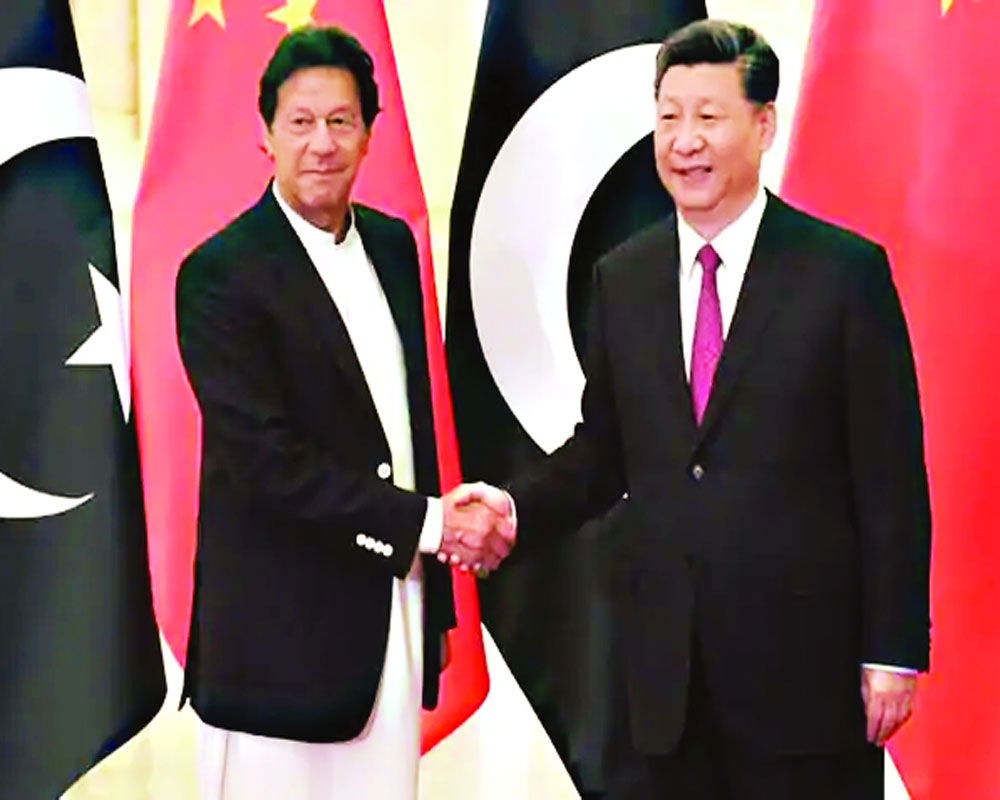With Pakistan being the sole loyalist of Belt and Road in the sub-continent, President Xi Jinping engages in hyperbole
Before we go red with rage at China promising to be “iron friends” with Pakistan despite talks of building a separate bubble for India through more Wuhans, we must realise that China will always look out for itself. That it will always have a forked tongue. That we have a huge trade deficit and Chinese technology has a hold over our economy. So it comes as no surprise that when Pakistan Prime Minister Imran Khan met Chinese President Xi Jinping on Sunday for bilateral talks, the latter said Beijing considers Islamabad a priority in its diplomacy. Jinping even classified Pakistan as his “all-weather strategic cooperative partner,” one he was looking to deepen ties with. This came in the backdrop of a meeting of his pet Belt and Road Initiative, something that is stuttering across South and Southeast Asia because of the inherent debt traps built into the programme, in effect converting smaller states into China’s economic colonies. Pakistan is the only nation which has reported progress on that front with the China-Pakistan Economic Corridor (CPEC) and though it has issues with servicing the debt, these are minor creases, isolated as it is by the world for exporting terror. China, too, has no option but to stick to Pakistan, as it is diplomatically “friendless” for turning a blind eye to the terrorism the latter breeds, particularly after the Pulwama attacks and India winning the world’s support on it. Besides, it can no longer be sure of North Korea. So they can’t come unstuck so soon. All Jinping could do about sensitivities and anxieties in India was to ask both sub-continental neighbours to meet each other halfway without committing to any move on designating Jaish-e-Mohammad chief Masood Azhar as a global terrorist. In its strategic quest, the Jinping era believes in direct, one-to-one dealings with each country and will not deal on a comparative scale and prize one over the other.
Back channellists, of course, continue to argue that privately, China did try to work out consultations with the US-led initiative on the language designating Azhar to a version more acceptable to itself. China was seemingly more willing this time around to work out a compromise within the UN 1267 sanctions committee. This despite its quid pro quo with Pakistan which means that it doesn’t look at Azhar to insure itself from IS spreading to its Muslim-majority provinces and attacks on the CPEC. However, when the US chose to pressure it with a new UN Security Council resolution on Azhar, it felt cornered. Besides, China’s own human rights record is under threat, given its severe crackdown on minorities in Uighur and Xinjiang provinces and confining them to detention centres. China has, of course, denied the accounts, saying it was running educational training centres as part of a fight against Islamic extremism. It is counting on Pakistan as the buffer against IS.
Getting Chinese support to designate Azhar as a global terrorist at the UN, in any format, would be no mean achievement and particularly be a salve for an outraged India, which has been at the worst receiving end of the Jaish attacks. But how then can India and the US succeed on this count? Of course, there’s the Financial Action Task Force, which monitors terror funding and which put Pakistan on the grey list with China’s knowledge. This means there is an incisive scrutiny of its financial system. Pakistan has been given a list of 27 actions to be completed by October 2019, if it wants to avoid the blacklist. But it hasn’t even shown any intention of doing so and is risking a ban on grants from the World Bank and IMF. By October, China will become the next president of the FATF as a result of a deal with India and the US, where China placed Pakistan in the grey list in return for endorsement by both US and India. Can these two countries now extract a return privilege? Perhaps that explains Jinping’s grand statements to please Pakistan momentarily. But China must realise that if it refrains from acting on Pakistan’s terror factory, India’s leadership would have a tough time justifying Wuhan to its people.
Writer & Courtesy: The Pioneer








 OpinionExpress.In
OpinionExpress.In















Comments (0)